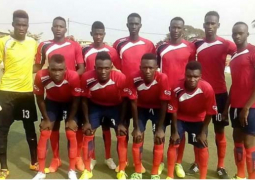The United States Embassy has announced the opening of the Ambassador’s Special Self-Help program for interested community -based organizations and villages.
This is a grass-roots assistance program that allows
A news release from the Embassy said Monday that all SSH funded activities must have a substantive link to the development of the local community and must encourage communities to be self-reliant and undertake similar activities on their own in the future.
According to the release, proposals must: Be generated in the field within the community context and be based on specific requests from local organizations; clearly describe how the activities will be managed and implemented; identify the anticipated results; be completed within 12 months and not to exceed $10,000.
It said proposal application and guidelines can be obtained at the front gate of the US Embassy or via http://banjul.usembassy.gov/news/grants/embassy-funding-opportunities.html
“Examples of Special Self-Help projects are community initiated small sustainable projects that are easily managed by the community members themselves. Examples of projects include: garden fencing, provision of wells, fencing of schools, rehabilitation of classrooms, provision of milling machines or power tillers, provision of school furniture or library materials, support for income generating activities like tie&dye, soap making, tailoring for women’s groups, construction of clinic waiting sheds, etc.,” the release said.
Meanwhile the Embassy also announces the opening of the Democracy and Human Rights Fund (DHRF) which is a grant to provide assistance to indigenous civil society organizations or Community Based Organizations (CBOs) and NGOs that will implement small, short-term, highly targeted activities designed to show measurable results with an emphasis on change in support of human rights and democratic institutions.
The release from the Embassy said common themes that proposals may cover and encourage include, though not limited to: change in civil and political rights; adherence to the Rule of Law through legal framework conducive to civil and political rights; free and democratic electoral systems; development of democratic principles that promote human rights and result in change; and increase access of women and ethnic groups to the judicial and to political processes.
“All DHRF funded activities must have a substantive link to the promotion of democracy or human rights,” it said, adding that proposals must: be generated in the field within the particular country context and be based on specific requests from indigenous organizations; clearly describe how the activities will be managed.
It also noted that proposals must identify the anticipated results; be completed within 12 months; demonstrate that a change in democracy and/or human rights practices or law will occur, or that beneficiaries will receive a new awareness on democratic and/or human rights principles and address civil and political rights (i.e. activities that promote the rule of law or domestic and civil and legal rights; and not to exceed $25,000.
Read Other Articles In Article (Archive)
PERFECT LOVE
May 13, 2009, 6:00 AM


